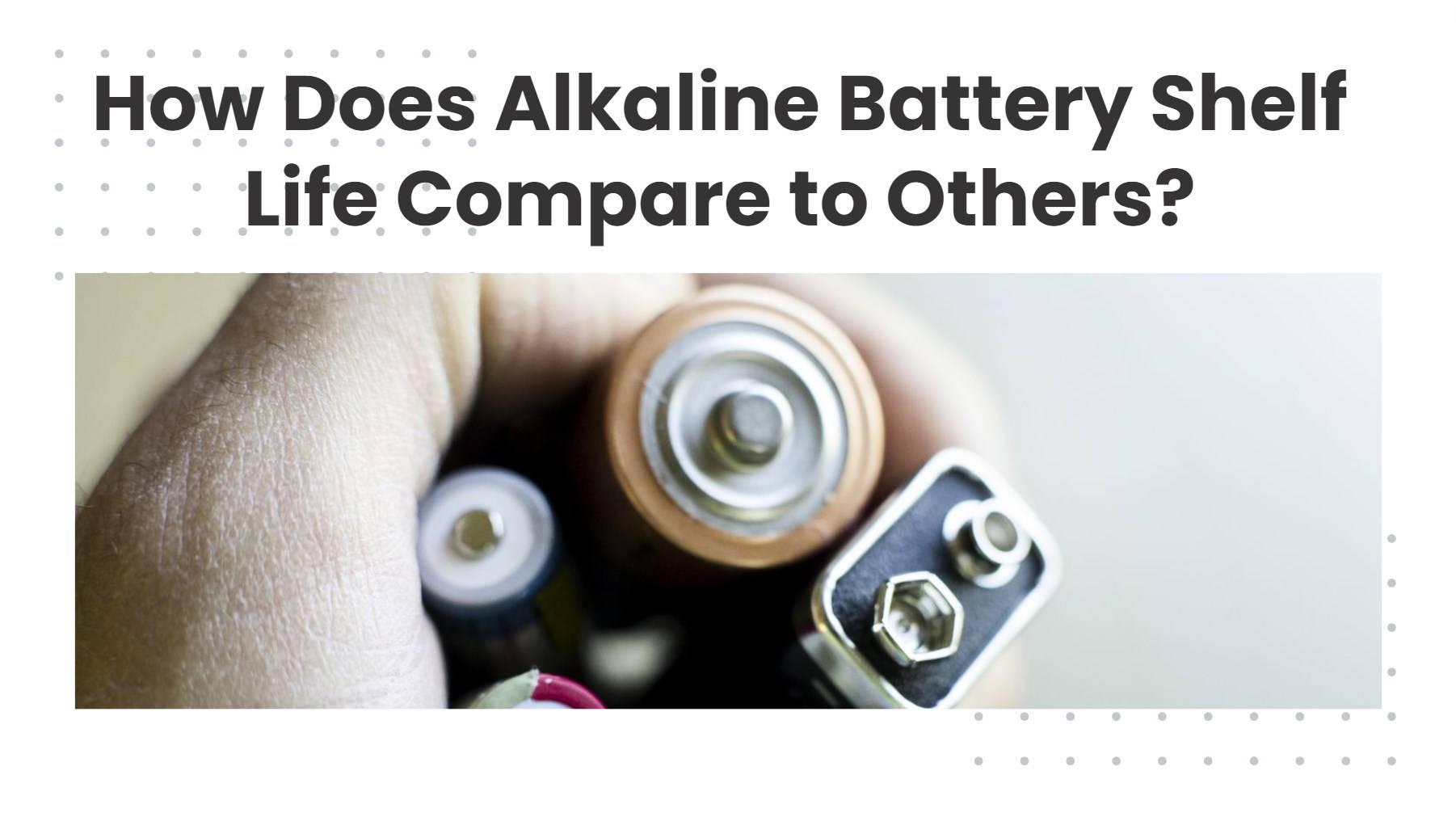
Blog
How Does Alkaline Battery Shelf Life Compare to Other Batteries?

Alkaline batteries typically offer a shelf life of 5 to 10 years, balancing cost-effectiveness and storage longevity. In comparison, lithium batteries have the longest shelf life of up to 15 years due to stable chemistry and a low self-discharge rate. Rechargeable NiMH and NiCd batteries have shorter shelf life, requiring regular recharging to maintain capacity. Shelf life significantly depends on battery chemistry, storage conditions, and manufacturer quality controls like those applied by Redway Power.
What is the typical shelf life of alkaline batteries?
Alkaline batteries generally maintain usable capacity for 5 to 10 years when stored in optimal conditions. Their sealed design limits leakage and slows internal degradation, making them practical for medium-term storage and sporadic use without frequent replacement.
How does alkaline battery shelf life compare to lithium batteries?
Lithium batteries outperform alkaline ones with a shelf life of 10 to 15 years. Lithium cells have lower self-discharge rates and superior chemistry stability, resulting in longer retention of charge and more reliable performance after extended storage periods.
What is the shelf life of NiMH and NiCd rechargeable batteries?
NiMH and NiCd batteries typically retain 70-85% of their charge within 3 to 5 years of storage due to relatively high self-discharge rates—typically about 20% loss monthly. This means they require periodic recharging even during periods of disuse to ensure performance.
How do storage conditions impact battery shelf life?
Temperature and humidity profoundly affect battery longevity. Cool, dry environments slow chemical reactions inside the battery, reducing capacity loss and corrosion risks. Conversely, high heat, moisture, and exposure to contaminants accelerate degradation and potential leakage.
How does self-discharge rate vary among battery types?
Alkaline batteries lose about 2-3% capacity annually, while lithium batteries self-discharge around 1-2% yearly. NiMH and NiCd rechargeables show significantly higher self-discharge—up to 20% monthly—making them less ideal for long-term storage without maintenance.
Chart: Self-Discharge Rates of Common Battery Types
| Battery Type | Approximate Annual Self-Discharge Rate |
|---|---|
| Alkaline | 2-3% |
| Lithium | 1-2% |
| NiMH Rechargeable | ~80-90% annually (approx. 20% monthly) |
| NiCd Rechargeable | Similar to NiMH |
What are best practices for storing alkaline and other batteries?
Store batteries away from heat and humidity, ideally in sealed packages or airtight containers. Avoid temperature extremes and exposure to static electricity or metallic objects. Inspect stored batteries periodically for signs of leakage or corrosion.
How does battery chemistry influence shelf life?
Battery chemistry governs internal reactions and stability. Alkaline chemistry excels in moderate shelf life with low maintenance, lithium chemistry achieves the best longevity with stable voltage retention, and rechargeable chemistries prioritize rechargeability over long-term storage.
When should alkaline batteries be replaced after prolonged storage?
Alkaline batteries stored over 7 to 10 years may lose significant capacity, affecting device performance. Testing voltage before use helps determine usability; replace batteries that show voltage below device requirements or exhibit leakage signs.
How does Redway Power manage battery shelf life in production?
Redway Power employs ISO 9001:2015-certified MES manufacturing systems to regulate material quality, precision assembly, and packaging. This rigorous process minimizes defects and optimizes shelf stability before distribution, guaranteeing customers prolonged, reliable battery storage and performance.
What environmental factors accelerate battery degradation?
Heat, humidity, vibration, UV light exposure, and physical damage hasten chemical and structural breakdown. These factors increase self-discharge, corrosion, and leakage, dramatically shortening shelf life.
How should shelf life influence battery selection for applications?
Choose lithium batteries for longevity and infrequent use; alkalines offer cost-effective medium shelf life for everyday devices. Rechargeables suit regular use but require maintenance. Redway Power advises consumers to match battery type with application and storage expectations for optimal results.
Redway Power Expert Views
“Battery shelf life blends chemistry, storage, and quality control factors,” affirms a Redway Power expert. “Our ISO-certified MES processes ensure alkaline and lithium batteries meet stringent shelf life criteria. Awareness of these dynamics enables smarter battery choices, ensuring reliable power and minimizing waste.”
Conclusion
Alkaline batteries provide solid shelf life but fall short of lithium’s superior longevity. Storage conditions and chemistry dramatically affect shelf stability, with NiMH and NiCd rechargeables requiring maintenance for effective storage. Redway Power’s certified production elevates battery shelf life reliability. Proper battery selection based on shelf life is key to consistent performance and cost efficiency.
FAQs
1. How long do alkaline batteries last on the shelf?
Approximately 5 to 10 years under proper conditions.
2. Are lithium batteries better for long-term storage?
Yes, they last 10 to 15 years with minimal self-discharge.
3. How do rechargeable batteries compare?
NiMH and NiCd lose charge faster, needing periodic recharging.
4. What storage conditions extend battery life?
Cool, dry, and stable environments maximize shelf life.
5. How does Redway Power ensure battery quality?
Through ISO-certified, MES-controlled manufacturing and testing.
6. When should stored alkaline batteries be replaced?
After 7 to 10 years or when voltage is insufficient.
7. Which battery is best for infrequent use?
Lithium batteries for longevity; alkaline for moderate use.



